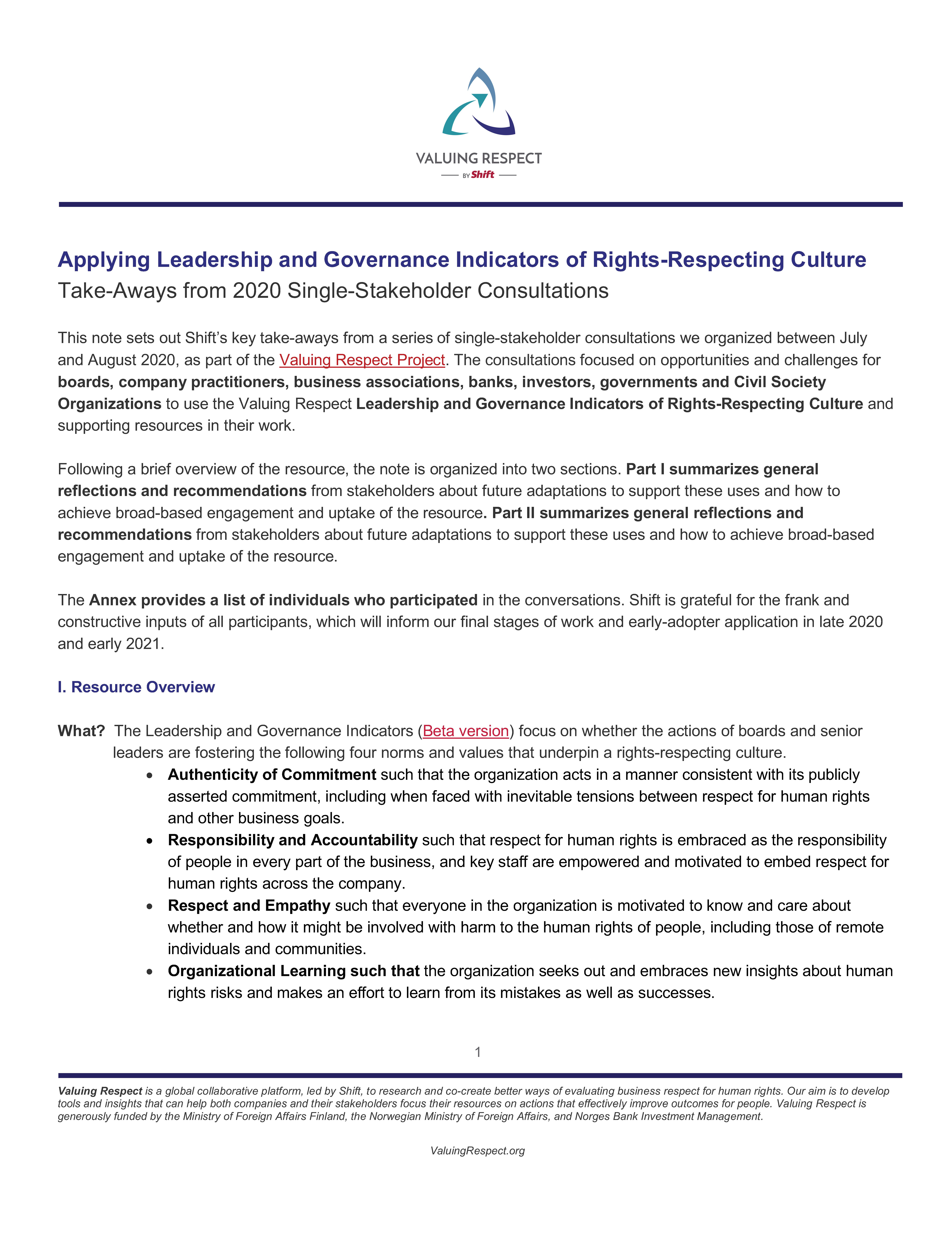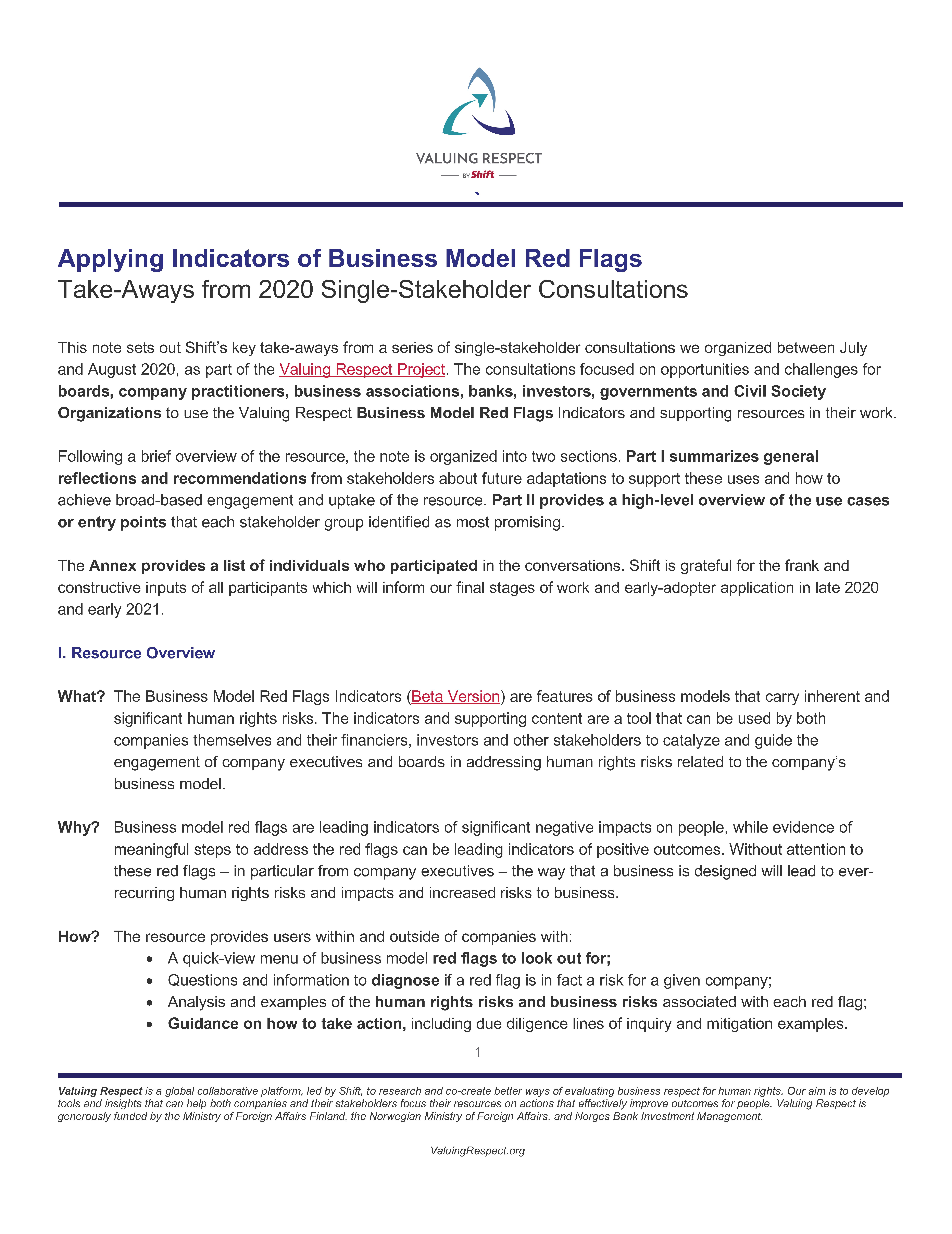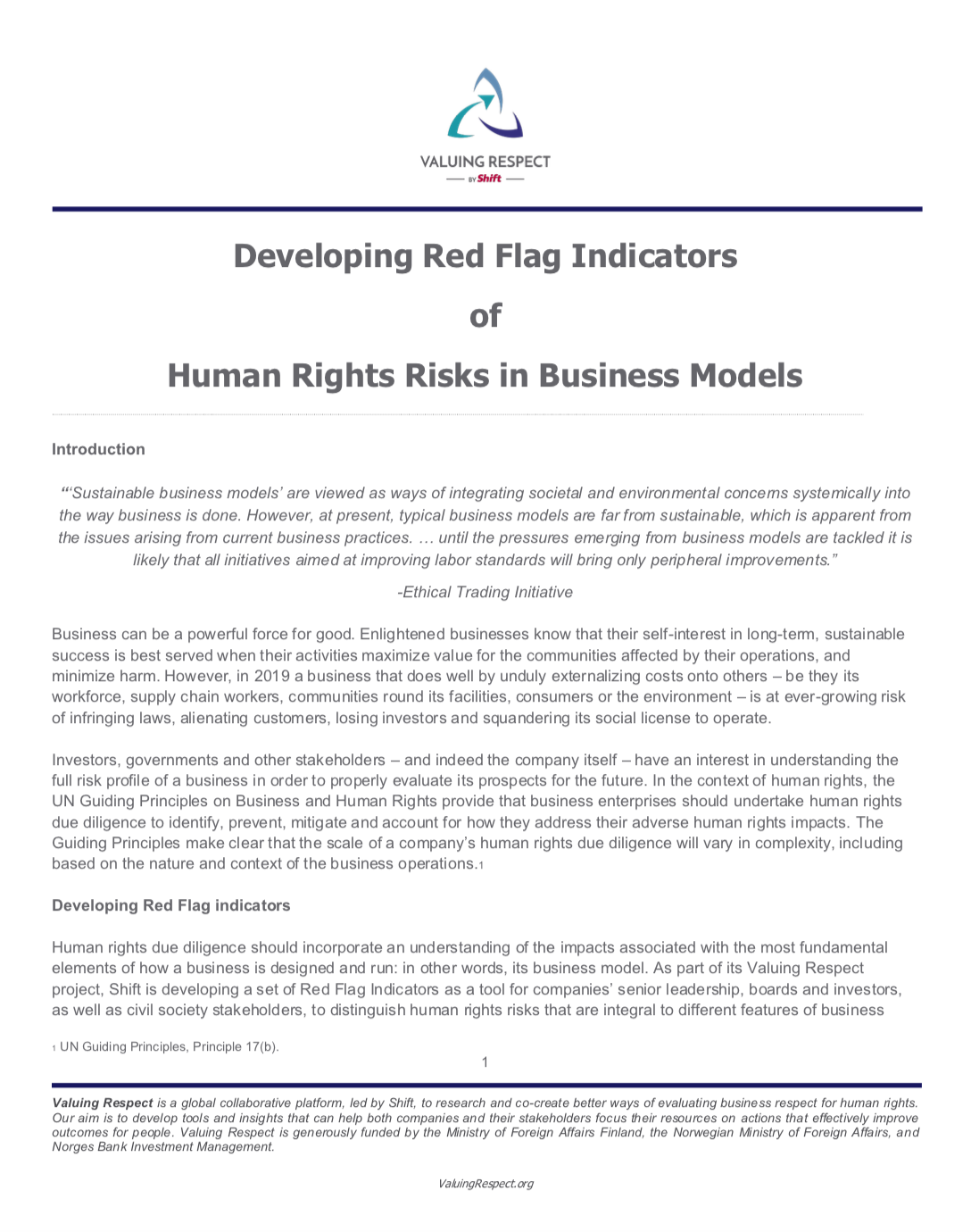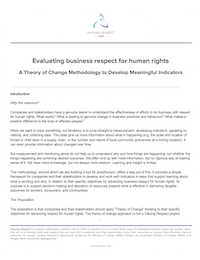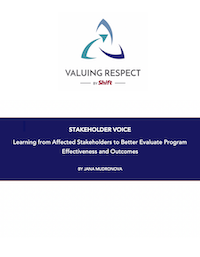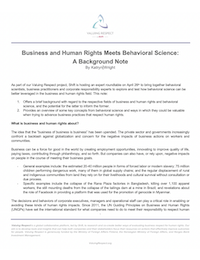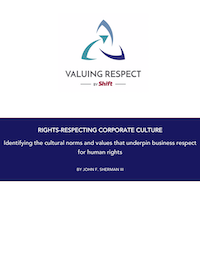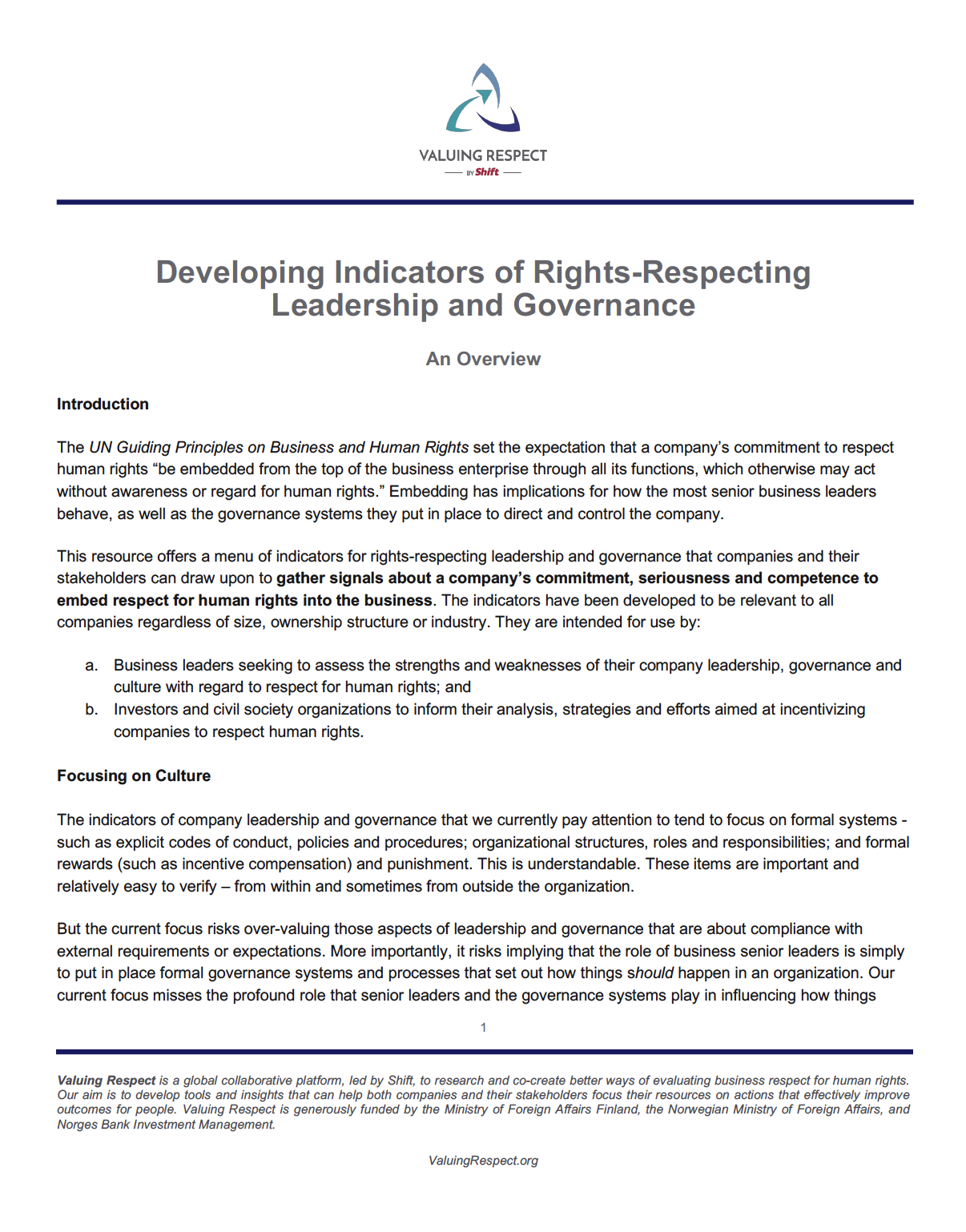This note sets out Shift’s key take-aways from a series of single-stakeholder consultations we organized between July and August 2020, as part of the Valuing Respect Project. The consultations focused on opportunities and challenges for boards, company practitioners, business associations, banks, investors, governments and Civil Society Organizations to use the Valuing Respect Leadership and Governance Indicators of Rights-Respecting Culture and supporting resources in their work.
Resource Type: Concept Note
Applying Indicators of Business Model Red Flags
This note sets out Shift’s key take-aways from a series of single-stakeholder consultations we organized between July and and August 2020, as part of the Valuing Respect Project. The consultations focused on opportunities and challenges for boards, company practitioners, business associations, banks, investors, governments and Civil Society Organizations to use the Valuing Respect Business Model Red Flags Indicators and supporting resources in their work.
Developing Red Flag Indicators of Human Rights Risks in Business Models
This document describes Shift’s approach to developing Red Flag Indicators of human rights risks in business models. The indicators will be a tool to help company leaders, boards and investors recognize and tackle risks to people that are embedded at the core of how a company delivers on its value proposition. We set out here our approach, structure and supporting resources for this tool, as we continue to consult widely on how to ensure its value and impact.
Evaluating Business Respect for Human Rights: A Theory of Change Methodology to Develop Meaningful Indicators
In this piece, we discuss our Theory of Change methodology, and why it’s such a valuable tool for evaluating business respect for human rights.
Stakeholder Voice: Learning from Affected Stakeholders to Better Evaluate Program Effectiveness and Outcomes
An increasing number of companies, investors and civil society organisations have expressed the need to better evaluate the effectiveness of company efforts to mitigate adverse human rights impacts in terms of outcomes for affected stakeholders. This paper focuses on ways to involve “stakeholder voice” in that evaluation, by which we mean the experiences, perspectives and insights of affected stakeholders. These are stakeholders who are affected by companies’ operations and business relationships, and can include community members, workers and consumers.
Business and Human Rights Meets Behavioral Science: A Background Note
This pre-read for our April 26th consultation in London provides a brief overview of current thinking in behavioral science, and ways we might apply that thinking in a business and human rights context to improve outcomes for people.
Rights-Respecting Corporate Culture: Cultural Norms & Values that Underpin Business Respect for Human Rights
This piece examines corporate culture, identifying the key elements that make a rights-respecting culture successful.

 Business Model Red Flags
Business Model Red Flags  Tool for Indicator Design
Tool for Indicator Design 